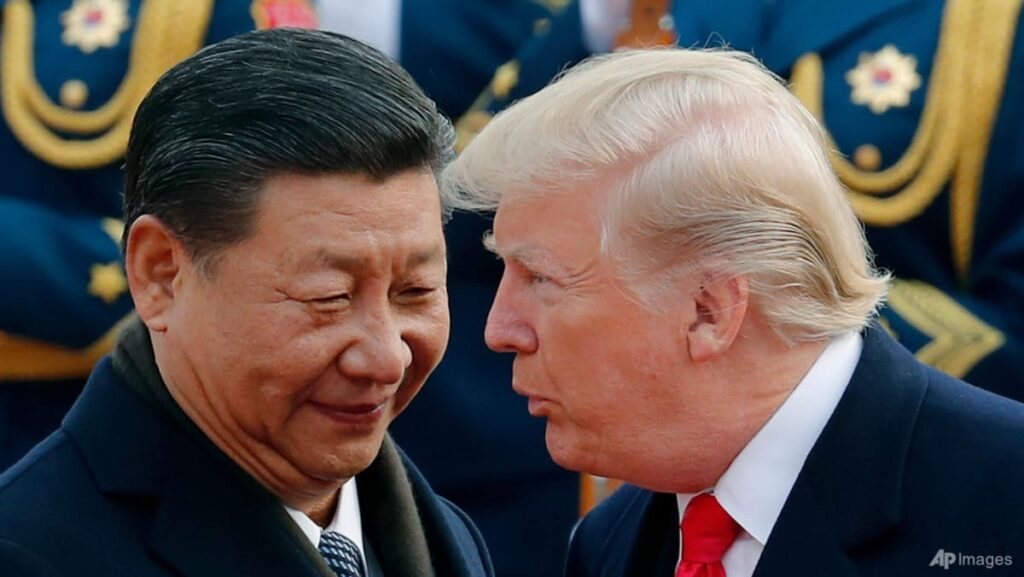But such assurances are largely symbolic, according to analysts, with little sign of substantive change.
Sun said any comment from Trump such as “I don’t support Taiwan independence” would merely echo long-standing US policy. “It’s (encouraging) to Beijing’s stance on Taiwan, but wouldn’t change anything fundamental,” he added.
“Unless Washington were to say it supports peaceful unification – which would be far more meaningful – (though) statements alone carry little weight.”
And China views Taiwan as a matter of sovereignty, not negotiation, Sun added. “No amount of US pressure will change China’s determination. It’s not something that can be traded.”
The issue of Taiwan is where symbolism meets strategy stakes in US-China relations, experts say.
For Washington, the intent is to deter escalation while maintaining stability across the Taiwan Strait. For Beijing, proximity and sovereignty make the issue central to its core national interests and domestic politics.
Ren from Fudan University said China’s position remains unshakeable. “China’s policy toward the US is highly stable and consistent, and it enjoys strong support from the Chinese public,” he said. Questions touching on sovereignty, he added, “remain non-negotiable” for Beijing.
OTHER BARGAINING CHIPS
Beyond trade and security, observers suggest other topics could surface informally during the Trump-Xi meeting, among them, cooperation on fentanyl precursor controls and human rights concerns.
The US wants tangible cooperation from China on stemming the flow of fentanyl precursors, which US authorities have linked to overdose deaths across the country.
Trump has repeatedly tied trade tariffs and law enforcement to the issue, hinting that stronger Chinese action on fentanyl could ease economic pressure in other areas.
For Washington, progress on this front carries domestic political weight, as the opioid crisis remains a key talking point for the Trump administration.
In recent statements, China’s Ministry of Public Security said it had maintained “working-level cooperation” with US agencies on precursor control and information sharing, while cautioning against “politicising” the issue.
At the same time, Washington has continued to raise broader human rights concerns as part of its engagement with Beijing, underscoring how non-trade issues remain intertwined with the wider relationship.
In late September, Trump publicly urged Beijing to release Hong Kong media tycoon Jimmy Lai, who remains in custody, pending trial, under the city’s national security law on charges of colluding with foreign forces and conspiring to publish seditious materials.
Chinese officials have pushed back against US pressure on domestic legal cases such as Lai’s, framing such comments as interference in China’s internal affairs.
While such topics are unlikely to feature formally on the summit agenda, analysts said they believe these could shape the tone of engagement.
Both sides are likely to pursue selective cooperation to stabilise ties, said Bond University’s Ping.
Others add that in these peripheral areas, symbolism often matters as much as substance – and that cooperative gestures, such as renewed counternarcotics dialogue, could help maintain a veneer of stability even as core differences remain unresolved.
GLOBAL MARKETS BRACING FOR IMPACT
Financial markets will be watching closely for signals from the Trump-Xi meeting – and for what they could mean for China and the US.
Early market reaction was mixed: oil prices rose on Oct 27, on hopes that easing US-China frictions could ease global growth risks.
Some stock-market indexes, including in China, picked up modest gains, while US futures and dollar markets remained cautious, which traders say reflected uncertainty over how much a broad framework without detailed terms could actually deliver.
A Reuters report this week noted that traders tend to react more sharply to disappointment than to modest progress, recalling how optimism and market behaviour during the 2019 and 2020 rounds of US-China negotiations, were often followed by volatility once talks stalled or details had failed to materialise.
https://www.channelnewsasia.com/east-asia/trump-xi-meeting-whats-agenda-5430306


